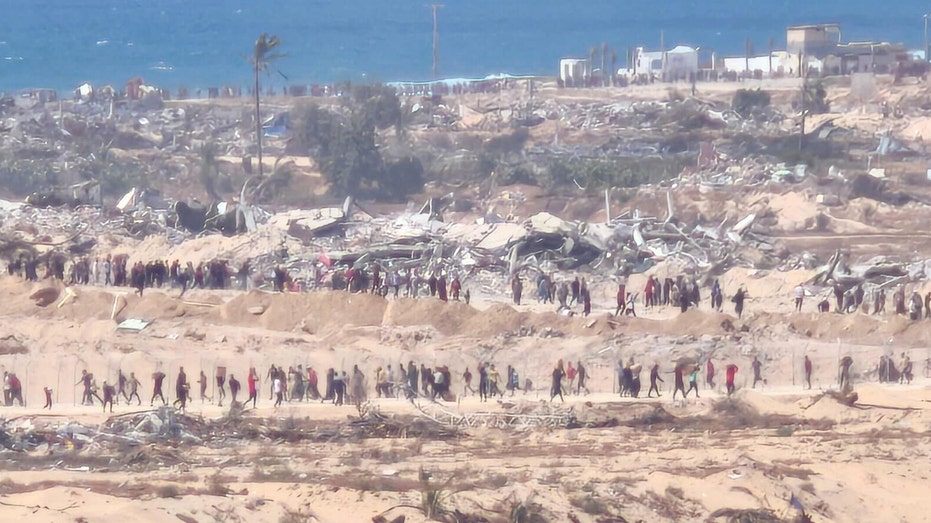US-Backed Aid Group Launches Food Distribution in War-Torn Gaza to Support Vulnerable Communities
Gaza Humanitarian Foundation begins aid distribution amid ongoing controversy and scrutiny

The Gaza Humanitarian Foundation (GHF), a U.S.-backed aid group that has received approval from Israel, announced it has begun distributing humanitarian assistance throughout the Gaza Strip this week. Despite being marred by controversy and facing questions about its neutrality and effectiveness, the organization stated that its initial supply shipments have successfully reached distribution hubs across the region. GHF did not disclose the exact number of trucks involved but promised additional aid deliveries scheduled for Wednesday.
Israel’s military confirmed the establishment of four aid distribution centers in collaboration with the United States and under direction from Israeli leadership. “Every day, thousands of Gazans will be able to come here, reach this third party and get the aid directly,” Israeli Defense Forces (IDF) spokesperson Lt. Col. Nadav Shoshani said in a video message. He expressed hope that the new system would curb Hamas’ ability to divert aid and allow civilians in Gaza to receive supplies without interference.
However, the rollout of GHF’s operation was overshadowed by the sudden resignation of its executive director, Jake Woods, who stepped down just hours before aid distribution began. Woods cited the organization’s inability to remain committed to humanitarian principles such as neutrality, independence, and impartiality. “I urge Israel to significantly expand the provision of aid into Gaza through all mechanisms, and I urge all stakeholders to continue to explore innovative new methods for the delivery of aid, without delay, diversion, or discrimination,” Woods said in a statement.
Woods' resignation amplified existing concerns about GHF’s operational independence. Critics have pointed out that the distribution plan involves armed contractors guarding the aid hubs, and that the majority of these hubs are located near Israeli military positions, some far from densely populated Palestinian areas. Aid groups have warned that this could limit access for many in need and raise questions about the safety and neutrality of assistance provided.
International organizations, including the United Nations and several humanitarian agencies, have voiced their skepticism regarding GHF. A spokesperson from the U.N. Office for the Coordination of Humanitarian Affairs (OCHA) told Reuters that GHF “is a distraction from what is actually needed.” The spokesperson emphasized the necessity for humanitarian operations to adhere to established principles and for aid to be scaled up dramatically to prevent famine and address the full scope of civilian needs in Gaza.
The Associated Press reported that GHF expects the amount of aid flowing into Gaza to increase daily, aiming to alleviate the persistent shortages faced by the local population. Still, with criticism mounting over the location and administration of the new distribution points, as well as the associated security protocols, the foundation’s future effectiveness remains uncertain.
Both the U.S. State Department and the International Red Cross were approached for comment on the issue, but had not responded by the time of publication.




